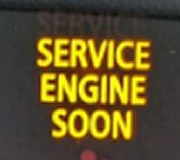Monday, December 26th, 2016 AT 11:42 AM
Three weeks ago my vehicle started to have A slight low ticking noise. Then a week later a solid check engine light came on. I checked codes and it showed cylinder three misfire code. I was told to put high octane fuel, in it with octane booster and I did. My light started to blink and since then blinks only for a minute and not every time when started and if reved. I checked my spark plugs for damage in cylinder three not apparent damage but want to change then to make sure and switched cylinder five coil with three to make sure was not coil and my coil is fine. So I was told change spark plugs can I get some advice to make sure I am doing what I need to do? I do not want it to be a major problem and make it worse it is running very rough and I am afraid of breaking down.




